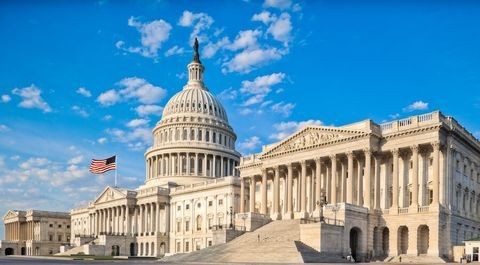California Implements Greater Restrictions on Employee Settlement, Separation and Other Employment Agreements
Client Alert | 4 min read | 10.21.21
California Governor Gavin Newsom signed into law a new bill, SB 311, also known as the “Silenced No More Act,” which broadly prohibits non-disclosure provisions in settlement agreements involving workplace harassment or discrimination based on any protected status under the Fair Employment and Housing Act (FEHA), not just based on sex. The statute also substantially limits the use of non-disparagement provisions in other types of employment agreements, including separation agreements, requiring employers to both provide at least five business days for consideration of a separation agreement and to notify employees of their right to consult an attorney regarding the agreement. The law goes into effect on January 1, 2022.
Restrictions on Settlement Agreements
Section 1 of SB 311 amends and expands SB 820, also known as the California STAND (Stand Together Against Non-Disclosures) Act, which was enacted in 2018 in response to the MeToo movement and codified as California Code of Civil Procedure section 1001. The STAND Act prohibits employee settlement agreements from restricting the disclosure of factual information regarding sexual assault, sexual harassment, discrimination based on sex, or retaliation for reporting harassment or discrimination based on sex. SB 311 expands those restrictions to include all types of discrimination prohibited by the Fair Employment and Housing Act (FEHA). Settlement agreements enacted on or after January 1, 2022 may not restrict the disclosure of factual information related to a claim filed in a civil action or a complaint filed in an administrative action alleging discrimination or harassment based on race, religious creed, color, national origin, ancestry, physical disability, mental disability, medical condition, genetic information, marital status, sex, gender, gender identity, gender expression, age, sexual orientation, or veteran or military status.
Notwithstanding these restrictions, the new law permits the parties to a settlement agreement to keep the identity of the claimant and all facts that could lead its discovery confidential, at the request of the claimant. The parties may also agree to keep the amount paid in settlement confidential.
Restrictions on Use of Non-Disparagement Agreements
Section 2 of SB 311 amends California Government Code 12964.5 to further limit the use of non-disparagement provisions in other types of employment agreements, including separation agreements. Currently, employers are prohibited from requiring an employee – in exchange for a raise or bonus, or as a condition of employment – to sign a non-disparagement agreement denying the right of an employee to disclose information about unlawful acts in the workplace, including but not limited to sexual harassment. SB 311 provides that “unlawful acts in the workplace” include any harassment or discrimination, not just sexual harassment or discrimination based on sex, as well as “any other conduct that the employee has reasonable cause to believe is unlawful.”
Employers may continue to use non-disparagement agreements in separation agreements and other documents that restrict an employee’s ability to disclose information related to lawful conditions in the workplace, but such provisions must include, in substantial form, the following language: “Nothing in this agreement prevents you from discussing or disclosing information about unlawful acts in the workplace, such as harassment or discrimination or any other conduct that you have reason to believe is unlawful.”
SB 311 specifically provides that the limitations on non-disparagement agreements do not apply to negotiated settlement agreements to resolve pending litigation, whether filed in court, before an administrative agency, or in an alternative dispute resolution forum, or to resolve a complaint filed through an employer’s internal complaint process. The term “negotiated” means that the agreement is voluntary, deliberate, and informed, that the agreement provides consideration to the employee, and that the employee is given notice and an opportunity to retain, or is represented by, an attorney.
SB 311 also makes clear that it does not prohibit the inclusion of a general release or waiver of all claims in separation agreements, or prohibit an employer from protecting its trade secrets, proprietary information, or confidential information that does not involve unlawful acts in the workplace.
New Time and Notice Requirements for Separation Agreements
The new statute requires employers to give employees (or former employees) a “reasonable time period” of not less than five business days to consider a separation agreement, and to notify them that they have the right to consult an attorney regarding the agreement. An employee may sign a separation agreement prior to the end of the reasonable time period as long as the employee’s decision to accept such a shortening of time is “knowing and voluntary” and not induced by an employer’s fraud, misrepresentation or threat to withdraw or alter the offer prior to the expiration of the reasonable time period, or by providing different terms to those who sign such an agreement prior to the expiration of that time period.
***
In anticipation of the January 1, 2022 effective date of this new law, California employers should review and update any policies and templates for employment, settlement, and separation agreements. Employers may also want to review any existing litigation or employment disputes based in California to determine whether it would be beneficial to resolve those matters before the end of the year.
Contacts
Insights
Client Alert | 2 min read | 12.29.25
FYI – GAO Finds Key Person “Available” Despite Accepting Employment with a Different Company
GAO’s key personnel rule is well-known—and often a source of frustration— amongst government contractors. Proposed key personnel who become “unavailable” prior to contract award—especially where they have accepted employment with a different company—may doom an offeror’s proposal by rendering it noncompliant with solicitation requirements. But GAO’s recent decision in FYI – For Your Information, Inc., B-423774, B-423774.2 (Dec. 19, 2025) provides some potential relief from that rule.
Client Alert | 4 min read | 12.29.25
More Than Math: How Desjardins Recognizes AI Innovations as Patent-Eligible Technology
Client Alert | 10 min read | 12.24.25
Client Alert | 3 min read | 12.24.25
Keeping it Real: FTC Targets Fake Reviews in First Consumer Review Rule





